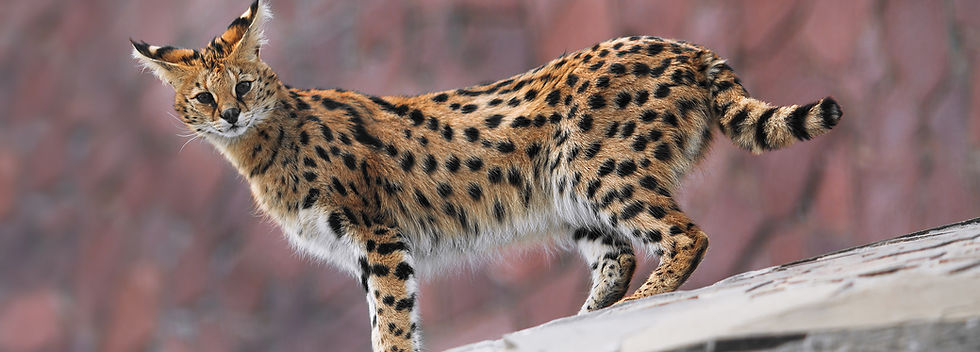
Caring for Servals and F1 Savannah Cats
I’ve spent many years working closely with Savannah cats, servals, and other exotic feline breeds. These majestic animals are often misunderstood, and unfortunately, there’s a great deal of misinformation surrounding their care and behavior. Between regulatory issues, permit restrictions, and the lingering stigma, the conversation around these cats tends to do more harm than good—especially to the animals themselves.
Many who are capable and willing to provide excellent care are left feeling confused, fearful, or unsupported. Worse still, those with hands-on experience often stay silent due to restrictive local and state laws that discourage open discussion. In my view, overly strict regulations don’t prevent people from acquiring these animals—they just drive the process underground. This black-market dynamic ultimately harms the animals, leaving new owners without guidance and the cats without proper care.
The truth is, these cats are not only stunning, but also highly intelligent and emotionally complex. They can thrive in a well-prepared home environment and can even become devoted companions—if their unique needs are fully understood and respected. I often compare them to the working dog breeds: they have high energy, impressive intelligence, and strong instincts. Unlike domestic housecats, they cannot be left home alone all day without consequences.
Exotic cats require extensive attention, enrichment, and interaction—especially in their early development. While they’re often labeled as solitary animals, I’ve found they typically do better when housed with a compatible companion or given access to an enclosed outdoor space. They require daily exercise, playtime, and very specific diets and supplements to stay healthy. And just like any other animal, wild or domestic, most behavioral issues stem from inadequacies in their environments.
One of the most misunderstood aspects of exotic cat behavior is marking. These cats will mark or spray regardless of whether they are spayed or neutered. It’s not a matter of training—it’s a natural part of their wild instincts. For example, I once had a friend visit who placed his jacket over a chair. Within minutes, one of the cats marked it. On another occasion, a friend stayed the weekend and afterward I found cat urine on tables, chairs, and even over the bed, clearly a territorial response. These behaviors are not unusual; they are to be expected.
Much consideration needs to be given to the other members of the existing household. Exotic cats are natural predators and if given the opportunity, they will attack and even kill animals they perceive as prey. This includes smaller pets such as rabbits, birds, or even small cats and dogs. If you have other animals at home, especially those significantly smaller in size, it’s important to understand the risk and plan accordingly. Consider yourself forewarned, as this behavior is instinctual, not malicious, and must be respected for everyone’s safety.
Additionally, their diet is not for the faint of heart. Exotic cats thrive on raw meat and whole prey. If you are squeamish about handling blood, organs, or frozen dead animals, this is not the companion for you. Even though some companies offer pre-ground or canned products, these cats require very specific nutrients found in raw bone, organ meat, and connective tissue. Without a proper diet, their health can rapidly decline. Feeding an exotic cat is a serious commitment and should not be taken lightly.
Too often, exotic cats are surrendered to sanctuaries simply because their owners weren’t informed of these realities from the beginning. While sanctuaries provide excellent care, I believe many of these animals are happiest in a home that offers more space, stimulation, and the stability of a secure bond with a well-prepared owner.
Education is everything. With honest information, realistic expectations, and proper support, these animals can live extraordinary lives, and so can the people who love them.